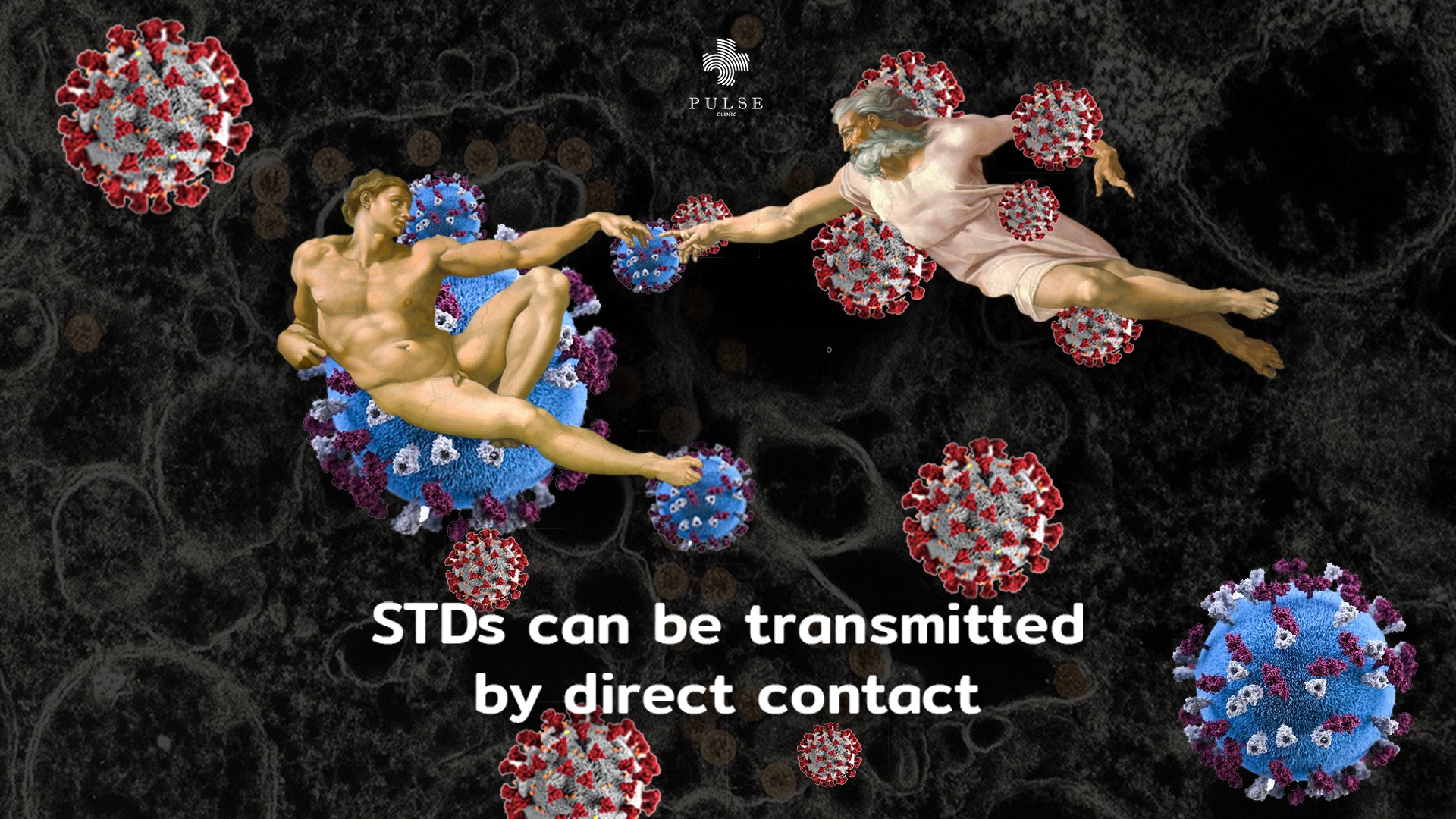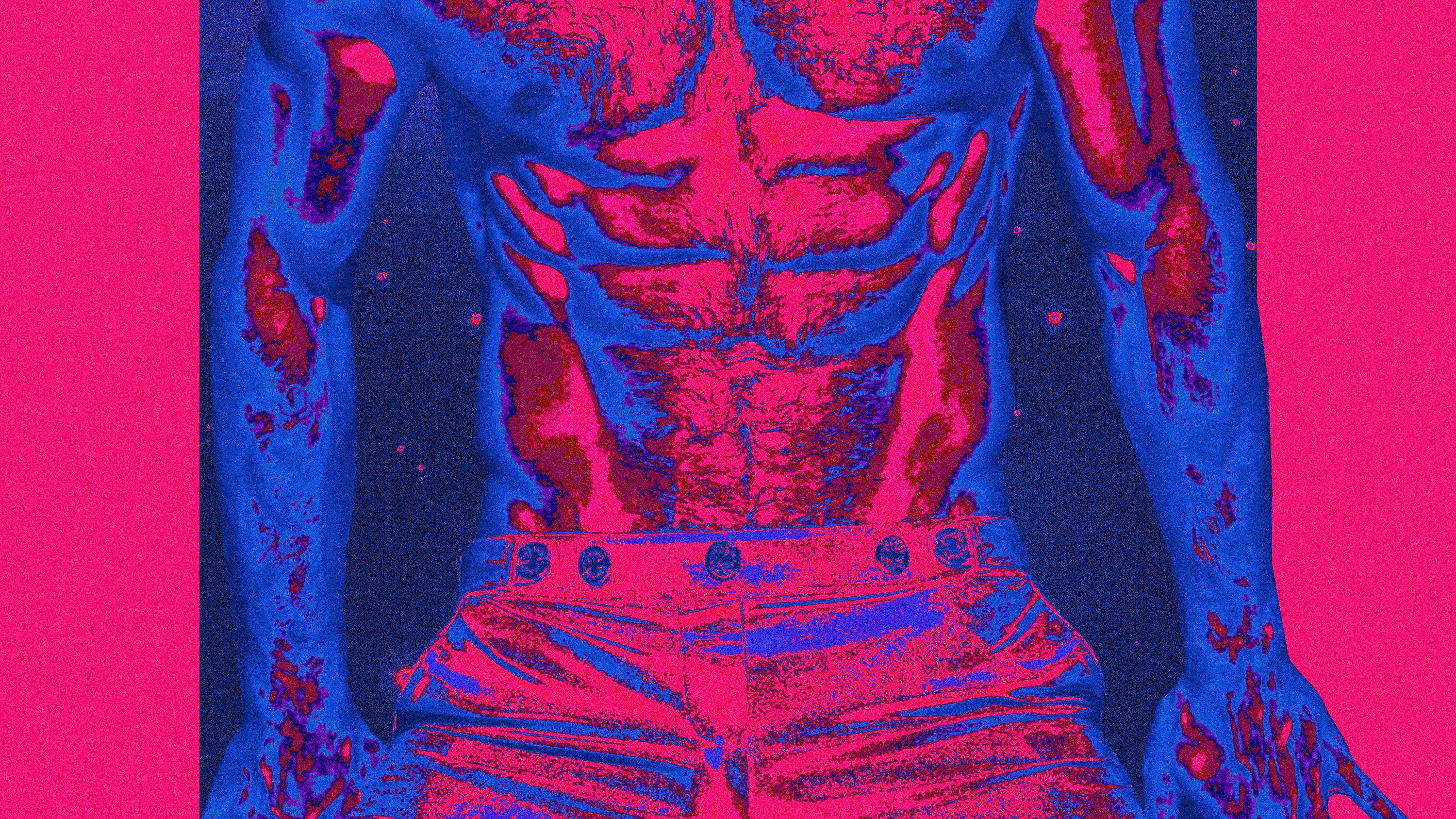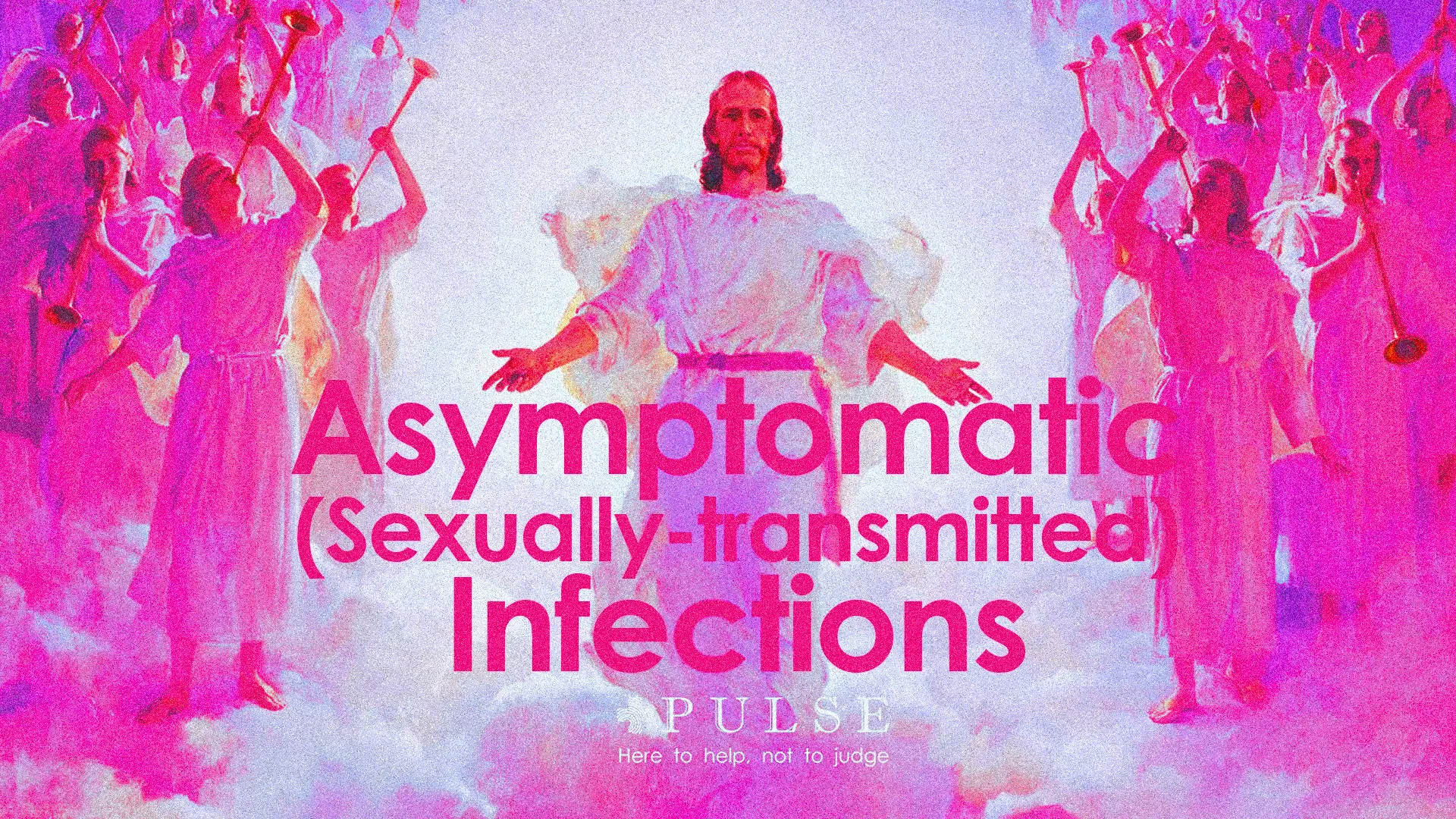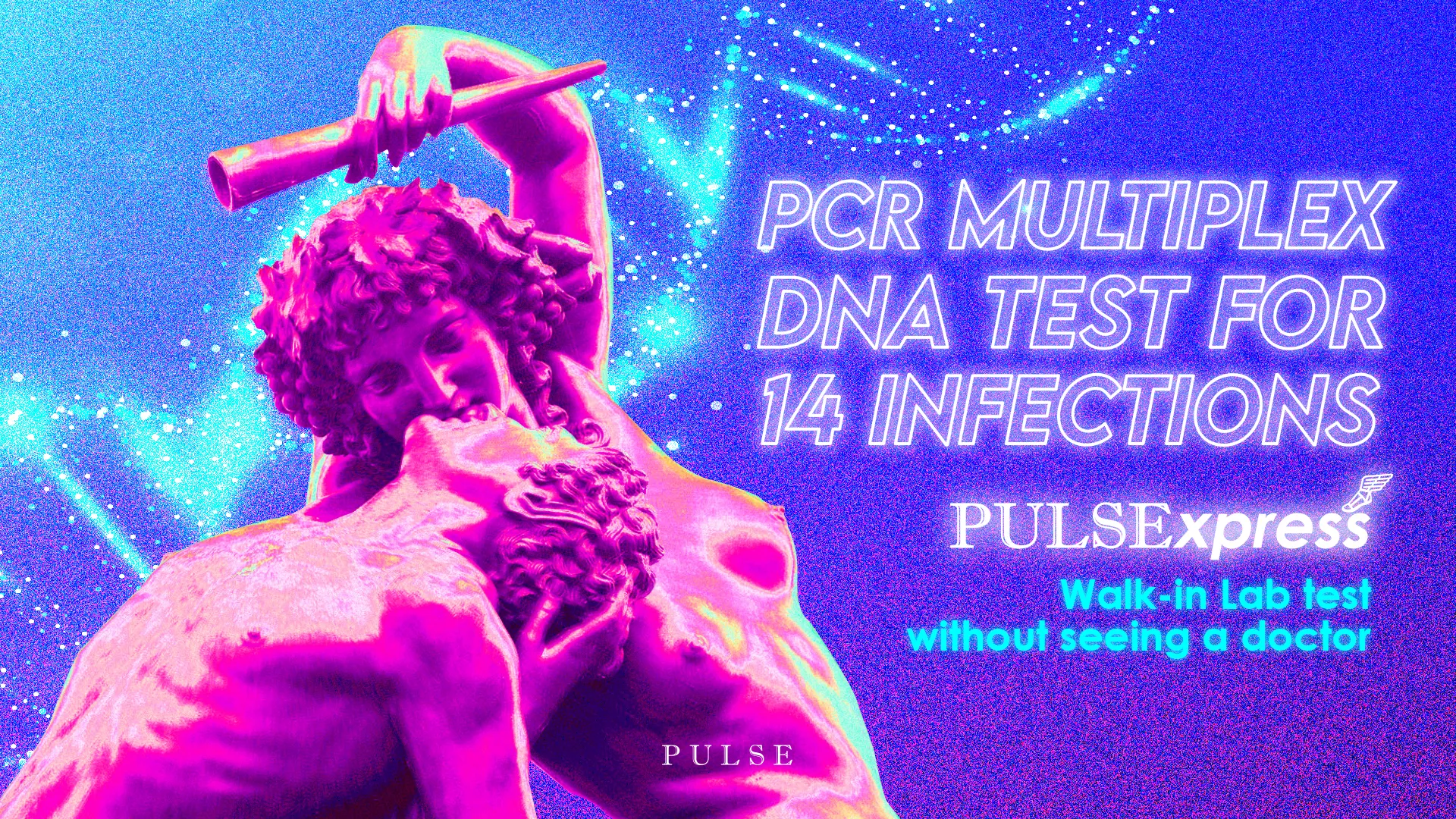Celebrating Pride This Year by Offering Actually Good LGBTIQ+ Health Care
15633
Where are the gay clinics that you walk in happy and walk out feeling seen, heard, healthy. The importances of Actually Good LGBTIQ+ Health Care.

Written by Dr.Love on 24 May 2017
Medically Reviewed and updated by Dr.Deyn Natthakhet Yaemim, 31 May 2021
Celebrating Pride This Year by Offering Actually Good LGBTIQ+ Health Care
|What happened to me when I went to anonymous clinic?
![]() When I first went there for my first HIV medication treatment long time ago, unsupervised 21-years-old, I'd never thought I'd leave a clinic feeling more anxious and worried about my health - and the medical staff and their services in general- than when I went in. I was scared, judged and I felt exposed.
When I first went there for my first HIV medication treatment long time ago, unsupervised 21-years-old, I'd never thought I'd leave a clinic feeling more anxious and worried about my health - and the medical staff and their services in general- than when I went in. I was scared, judged and I felt exposed.
Everybody knew the anonymous clinic, they exist for research and for treatment for decades, I thought it was my best shot at takang care of my health as an HIV positive person and as a-back then- young gay man. I thought I could be building up a trustworthy long term doctor-patient relationship with a provider I could rely on. As I sat in the waiting hall full of other HIV positive people some people wearing sunglasses and hat, some people were wearing mask. When it was time for my queue, they called my queue number and name so I went up to the room. And when I am there, a staff in white coat said to me "You, sit outside first." And then she started to ask me a question, "You work for massage shop? Many clients?". I was wearing a white coat to but he probably didn't see the title and the name on it.
I suddenly felt hurt and judged and started to ask myself "Do I need this (kind of treatment) from a clinic that I intent to trust with my life?", "Can't she really at least pretend to care to read what's on my white coat?" Back then I was felling nervous, anxious, scared, worried and the staff added one more feeling to me....PAIN. The pain for being judged, pain for being unseen, pain at the disappointment of medical staff's microaggression. So I stayed quiet and thought of never fucking coming back. I got prescribed with 3 months of medication but pharmacy let me have only 1 bottle which was enough for 1 month and she said "First timer only 1 bottle allow, you can come back next month." And in my head I was like "My prescription is clear that I needed 3 months why do I need to come back in a month and start the whole process all over again?"
On the way out from the aonymous clinic, there were thought running in my head. If this is happening to me, what about other people who are already in pain and are vulnerable to get quality treatment as a human. Everyone deserves to be treated nicely and with respect.
|Doctors and medical staff need way more training.
![]() If you were to call five medical schools and ask them how many hours of training are devoted to the LGBTIQ+ community, I think zero would be the most common answer. Because LGBTQ+ care is not prioritized in most medical schools, finding a doc who gets you even if you live in a metropolitan (and especially if you don’t live in a city) can feel impossible. And when a physician knows basically nothing about your health needs, you wind up, at best, spending most of the appointment educating them on things like why you need an STI test even if you’re not in a heterosexual relationship. At worst, you face misgendering, interrogation of your identity, or harmful treatment.
If you were to call five medical schools and ask them how many hours of training are devoted to the LGBTIQ+ community, I think zero would be the most common answer. Because LGBTQ+ care is not prioritized in most medical schools, finding a doc who gets you even if you live in a metropolitan (and especially if you don’t live in a city) can feel impossible. And when a physician knows basically nothing about your health needs, you wind up, at best, spending most of the appointment educating them on things like why you need an STI test even if you’re not in a heterosexual relationship. At worst, you face misgendering, interrogation of your identity, or harmful treatment.
|Understanding LGBTIQ+ health issues.
![]() LGBTIQ+ sexual well-being is complex multi-dimensions matters. Think about men's physical, sexual and mental health, while approximately 50% of men will experience some form of ED3, only approximately 25% actively seek consultation.4 This discrepancy is partially due to the social stigma in society surrounding men's open discussion of ED, preventing men from confiding with healthcare professionals and obtaining the help that they need5, and think about women's health. For transgender people, sum it all up with think about men's and women's health issues and add a lot of psychological burden of having to dela with "acceptance, equality, discrimination, legal issues among many other issues.
LGBTIQ+ sexual well-being is complex multi-dimensions matters. Think about men's physical, sexual and mental health, while approximately 50% of men will experience some form of ED3, only approximately 25% actively seek consultation.4 This discrepancy is partially due to the social stigma in society surrounding men's open discussion of ED, preventing men from confiding with healthcare professionals and obtaining the help that they need5, and think about women's health. For transgender people, sum it all up with think about men's and women's health issues and add a lot of psychological burden of having to dela with "acceptance, equality, discrimination, legal issues among many other issues.
When talking about sexual well-being and sexual health we have to think about the complexity and interrelationship in dimensions between physical well-being, emotional well-being, mental well-being, social sexual well-being and interperson sexual well-being.1
| 29% of transgender people in America said that a health care provider refused to see them.
source: A 2018 study by the Center for American Progress
|Sexual Well-Being Is Not Just One-Dimension.
1. Physical sexual well-being: For gay, bi, and many trans people, anything to do with our penis has everything to do with our life. It's not about just prostate cancer that matters, there is also a heightened matters in male secondary appearances to male urologic health with the advent of new treatment options for hypogonadism, Peyronie's disease, erectile dysfunction, sexual dysfunction, premature ejaculation, infertility, and andrology. And for many trans people, depending on which state you live in, pharmacists can legally decline to fill your prescription for hormone therapy.
2. Emotional sexual well-being: Everything about how you feel about yourself has everything to do with your whole life. Since the early 2000s, treatments for low testosterone, or "low T", have been gaining popularity. From 2001 to 2011, testosterone use in the United States tripled, and hundreds of testosterone clinics emerged to capitalize on this trend.2 The goal of testosterone therapy is to accurately making a diagnosis, listening to all of a patient's symptoms, and properly tailoring treatment regimens with the follow up protocols. A lot of time, we have doubt and questions about our (and someone else's) penises, hence, emotional well-being can have a high effect on a person's well-being which also effect people around us.
3. Mental sexual well-being: For many men, gay men, bisexuals and trans people, the ego located in the penis. And for many women, lesbian and some trans ladies, they do are a lot about their breasts, body shape, butt shape and the vagina. And when you care a lot, but you don't know a lot, you might also worry a lot. Mental well-being also cover everything during awake and sleep, from dealing with feelings, knowing your feelings, mental health, addiction health. Everything about how you feel and perceive about yourself; who you were, who you are and who you want to be can effect the whole life of a person. However, in some countries, a therapist can stop working with you after learning about your sexuality.
4. Interperson Sexual Well-being: Interpersonal of sexuality is remarkable because people most often have sex in a relationship. It is important to go beyond individual factors and take into account relational and contextual variables, which may act as risk and protective factors for developing, maintaining, and exacerbating sexual problems.6 Linking sexual and nonsexual aspects of interpersonal relationships and including data of individuals is necessary for a clearer insight into the nature of sexual behaviour, characteristics and dysfunctions. PrEP, the HIV revolution, is a pill that prevent HIV even if you fuck bareback also is a pill that is very much needed everywhere in the world. However, in some states in the US, a pharmacist can legally decline to fill your prescription and in many countries, even though PrEP is free and cheaply affordable some doctors will still refuse to prescribe it to you because they would judge that you will fuck bareback on PrEP and they would prefer that you use condoms.
5. Social Sexual Well-being: Social well-being is an end state in which basic human needs are met and people are able to coexist peacefully in communities with opportunities for advancement. Sometimes individual's needs can not meet with social standard or norm and it effect our well-being directly. We know for and there are evidences that there are relationships between sexual desire between human being, objects and sometimes abstracts. While we have a neutral-to-positive view on people gathering together for home party, sex party, and different kinds of fetishes there are certain social norms and ethics that has to be discussed.
| LGBTQ+ community is more likely to rate their health as poor and more likely to delay getting care. ![]()
|Health Insirance Laws SUCK
![]() When the world is pretty uch created by straight (white) men (and a little bit of straight women), they don't have time to care about LGBTIQ+ matters. They are busy trying to get themselves laid and taking care of ther own businesses. Generally speaking, when you're straight men, all you think about is women and when you're straight woman you may spend your time thinking about heterosexual love and straight men.
When the world is pretty uch created by straight (white) men (and a little bit of straight women), they don't have time to care about LGBTIQ+ matters. They are busy trying to get themselves laid and taking care of ther own businesses. Generally speaking, when you're straight men, all you think about is women and when you're straight woman you may spend your time thinking about heterosexual love and straight men.
So when we're talking about insurance policies, like some medical professionals, insurers often don’t account for the needs of different gender identities—and in the US, there are 28 states that don’t protect LGBTQ+ residents from health insurance discrimination, companies don’t even need to try. This is super important to be aware of because these companies are the ones that dictate what treatments and procedures get covered for which patients. Some men in the trans community may need pap smears, while some women may need prostate exams—but both groups may be forced to pay in full (or battle with their insurers) just to get these basic services.
This is why we had to create the new models, yes not just one model, for specific needs for LGBTIQ+ community. Private clinic or hospital, they should offer affordable price with high quality to our community. Community-based organisation or NGOs who are trying to provide the services must not provide the services based on researches from the funder or donor because most of the time, when the research project finishes in 2 or 3 year, the patients are left high and dry and then it could be difficult for the patient to continue the treatment or to complete the treatment they need. And to make people change their medical provider just because the researches are over shows how careless some NGOs really are about the well-being of their patients.
|Discrimination, bias and your health and wellbeing
![]() Outside the doctor's office or hospital (supposedly a place where you shouldn't be judged or harm), more than 50% of the LGBTIQ+ Americans surveyed by the Center of American Progress said they experienced discrimination or harassment in public. And enduring the prejudice anywhere can impact your wellbeing and health, making you more likely to face depression, anxiety, heart disease, among many other issues, according to the analysis of more than 245 studies on the subject.
Outside the doctor's office or hospital (supposedly a place where you shouldn't be judged or harm), more than 50% of the LGBTIQ+ Americans surveyed by the Center of American Progress said they experienced discrimination or harassment in public. And enduring the prejudice anywhere can impact your wellbeing and health, making you more likely to face depression, anxiety, heart disease, among many other issues, according to the analysis of more than 245 studies on the subject.
What's more? The negative health effects multiply for lower-income and unprivileged members of the LGBTIQ+ community, making the most at-risk people even more vulnerable. So that's why we have to help and support each other in our community because, as I said, everybody has the right to live well happy-healthy-horny.
When you are gay, good gay friends are like your family. Research shows that social support from friends and family, anti-discrimination policies and inclusive health care can help limit and reduce the damage. So? More? Of clinic like PULSE? Yes, immediately!
Trust PULSE CLINIC to take care of your health like other 45000 people from over 130 countries. We provide discreet professional service with high privacy. Here to help, not to judge.
|The Benefits of Modern Sexual Well-Being Clinic
![]() The goal of modern Men's sexual well-being clinic is to provide
The goal of modern Men's sexual well-being clinic is to provide
- the up-to-date information, medical and non-medical services to improve people' quality of lives in both in the city and rural area stigma-free services
- non-judgmental encouter
- comprehensive and holistic services
- most convenient services that gives best environment to the people
- confidentiality comes first (no gossiping nurses or waiting in the hall for everyone to see)
- personalized and customized treatment
|Telemedicine and online clinic
![]() This is exactly the area of healthcare that telemedicine seeks to address. By providing personalized care to patients within the privacy of a patient's home, telemedicine companies are able to deliver healthcare services to patients seeking consultations regarding topics that had previously been considered too shameful to address in a public space. These services provide patients with a simple and convenient alternative to seeing a PCP for their common healthcare needs. After a telemedicine "visit" with a doctor, the patient is prescribed medication that can then be purchased directly through the telehealth platform, all within the comfort of a patient's home.
This is exactly the area of healthcare that telemedicine seeks to address. By providing personalized care to patients within the privacy of a patient's home, telemedicine companies are able to deliver healthcare services to patients seeking consultations regarding topics that had previously been considered too shameful to address in a public space. These services provide patients with a simple and convenient alternative to seeing a PCP for their common healthcare needs. After a telemedicine "visit" with a doctor, the patient is prescribed medication that can then be purchased directly through the telehealth platform, all within the comfort of a patient's home.
Healthcare sectors that had previously been primary reliant on face-to-face consultations are beginning to shift towards telemedicine. Good sexual health clinic can offer online prescriptions for contraception, hormone therapy, common ED medications, hair loss treatment, home test kits for HIV and STDs as well as PrEP and other medication refill without the need to see a doctor at the clinic.
|About PULSE CLINICS
![]() PULSE is an established clinics since 2015 with physicians who are treating men's health needs and supportive medical providers who are having supportive role to assist unique and specific men's need offering complete range of consultation, testing, treatment for all angles of men's sexual well- being, Men's health is a unique discipline that should be practiced by physicians and health providers comfortable with the gic, sexual, and reproductive health of men. Since it requires a multi-disciplinary approach to appropriately treat the full spectrum of men's health needs. In the last 6 years there are more than 45,000 clients from 130 countries visiting PULSE for their unique health needs, treatments and continuous care. As of 2021, PULSE has expanded from it's first branch on Silom road, Bangkok, Thailand to 11 branches in Bangkok, Phuket, Singapore, Hong Kong and Kuala Lumpur.
PULSE is an established clinics since 2015 with physicians who are treating men's health needs and supportive medical providers who are having supportive role to assist unique and specific men's need offering complete range of consultation, testing, treatment for all angles of men's sexual well- being, Men's health is a unique discipline that should be practiced by physicians and health providers comfortable with the gic, sexual, and reproductive health of men. Since it requires a multi-disciplinary approach to appropriately treat the full spectrum of men's health needs. In the last 6 years there are more than 45,000 clients from 130 countries visiting PULSE for their unique health needs, treatments and continuous care. As of 2021, PULSE has expanded from it's first branch on Silom road, Bangkok, Thailand to 11 branches in Bangkok, Phuket, Singapore, Hong Kong and Kuala Lumpur.
|Services of PULSE LGBTIQ+ Well-Being Clinics
- Providing advice, consultation and testing for male health conditions with experienced friendly medical doctor and supportive medical providers
- Check for risk factors that cause erectile dysfunction problems.
- ED Treatment with shock wave technology, medications.
- Low testosterone and testosterone replacement therapy.
- Comprehensive lab tests for body builders.
- Ejaculation issues. Increase semen volume.
- Sperm count.
- Penile irritation, rash and redness.
- Sexually-transmitted infections screening, diagnosis and treatment.
- Anonymous HIV Testing
- Rapid accurate screening for HIV, Hepatitis A B C virus, Syphilis
- STIs DNA test (NAAT PCR) for 7-14 infections at one test using urine specimen
- STIs DNA test (NAAT PCR) for 7-14 infections at one test (throat, anal, rectal swab)
- PrEP and PEP for HIV prevention.
- buy PrEP online
- Problems with urination, prostate conditions which cause erectile dysfunction in the adult men and elderly.
- Enlarged prostate.
- Prostate Cancer Screening
- Peyronie's disease. Circumcision. Cosmetic circumcision.
- Hypertension, diabetes, complete blood count.
- Emotional conditions or stress that affect sexual activity.
- Mental health consultation.
|References
- Justin J. Houman, Sriram V. Eleswarapu, and Jesse N. Mills Current and future trends in men’s health clinics. Transl Androl Urol. 2020 Mar; 9(Suppl 2): S116–S122.
- Jacques Baillargeon, Yong-Fang Kuo, Jordan R Westra, Randall J Urban, James S Goodwin. Testosterone Prescribing in the United States, 2002-2016. JAMA . 2018 Jul 10;320(2):200-202.
- Faysal A Yafi, Lawrence Jenkins, Maarten Albersen Erectile dysfunction. Nat Rev Dis Primers . 2016 Feb 4;2:16003. doi: 10.1038/nrdp.2016.3
- Undertreatment of erectile dysfunction: claims analysis of 6.2 million patients. Frederick LR, Cakir OO, Arora H, Helfand BT, McVary KT J Sex Med. 2014 Oct; 11(10):2546-53.
- Impact of erectile dysfunction and its subsequent treatment with sildenafil: qualitative study. Tomlinson J, Wright D BMJ. 2004 May 1; 328(7447):1037.
- Marieke Dewitte Maastricht University. On the Interpersonal Dynamics of Sexuality. Journal of Sex and Marital Therapy 40(3) DOI: 10.1080/0092623X.2012.710181
- Beck M. How Telemedicine Is Transforming Health Care. Wall Street Journal, June 26, 2016.
Add us on Line and stay in touch.








